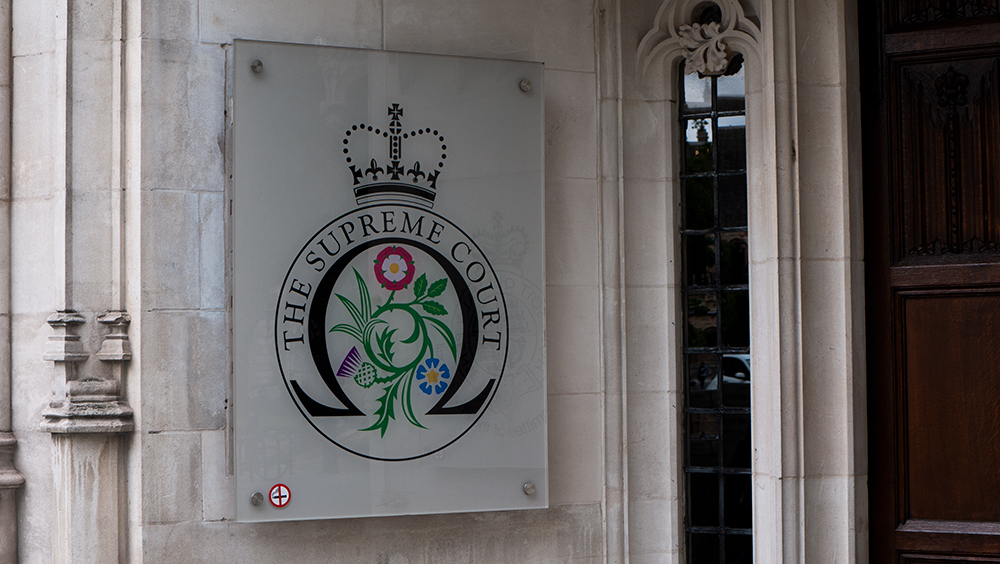UK Supreme Court rules London property outside the reach of Russian bankruptcy proceedings

The UK Supreme Court has ruled that a Russian trustee in bankruptcy could not claim a property in London owned by a bankrupt Russian citizen due to the operation of the principle of immoveable property rights being solely determined by the laws of the country they are located in.
Appellant Lyubov Kireeva was required under Russian law to take control of the property, accepted to form part of respondent Georgy Bedzhamov’s bankruptcy estate. As the High Court had held that English law did not recognise her claim by virtue of the private international law principle known as the “immovables rule”, she sought assistance under the common law to overcome the principle.
The appeal was heard by Lord Reed, with Lord Lloyd-Jones, Lord Briggs, Lady Rose, and Lord Richards. Stephen Davies KC and William Willson appeared for the appellant and Justin Fenwick KC and Stephen Robins KC for the respondent.
Beyond the reach
Mr Bedzhamov was a Russian citizen who left the country in 2015 and obtained a long lease of a house in Belgrave Square, London. In August 2016, a Russian bank in provisional liquidation, VPB, obtained an unjust enrichment claim against the respondent in a district court in Moscow worth in excess of £30 million. Based on that decision and another judgment worth £3 million in favour of another bank, the respondent was declared bankrupt by the Moscow City Arbitrazh Court in July 2018, with the appellant appointed as the equivalent of a trustee in bankruptcy.
In December 2018, VPB issued proceedings against the respondent in the Chancery Division seeking damages in excess of £1.34 billion for an alleged fraud he perpetrated, an action that remained ongoing. Ms Kireeva issued her own application in the Chancery Division in February 2021 seeking recognition at common law of the Russian bankruptcy order and to take control over his London property. While the order was recognised by the court, the application was dismissed insofar as it sought assistance relating to immovable assets in England.
Before the Court of Appeal, the appellant argued that the claim for assistance was not barred by the immovables rule. While the foreign bankruptcy order could not bypass the local system for transferring title, the English court would recognise that the property fell within a bankrupt estate and would assist her to realise it for the benefit of the creditors. However, this claim was rejected on the basis that the immovables rule meant English law did not recognise any claim the appellant had on behalf of the estate.
It was accepted by the parties that the statutory exceptions to the immovables rule under the Insolvency Act 1986 did not apply in this case. However, the appellant maintained that the immovables rule did not operate to place an English immovable beyond the reach of a foreign bankruptcy, and under the principle of modified universalism the court had a common law power to assist foreign winding up proceedings where it could.
A matter for Parliament
In a joint opinion to which the other judges agreed, Lord Lloyd-Jones and Lord Richards said of the appellant’s case: “The fallacy on which all the submissions of the Appellant are based is that, notwithstanding the immovables rule, the English court may at common law recognise and give effect to the rule of Russian bankruptcy law that all the property of the bankrupt, including interests in land located in England, forms part of the bankrupt estate. This is fundamentally at odds with the immovables rule which is a substantive rule of English law.”
They continued: “The rule is not concerned solely with the vesting of title, but has the effect, as earlier explained, that at common law no recognition will be given to any provision of foreign law or any order of a foreign court which purports to affect rights to or interests in land located in England. It follows that the common law does not recognise the Property as being part of the assets that are within the scope of the Respondent’s bankruptcy in Russia. As a matter of English law, his interests in the Property are unaffected by the Russian bankruptcy order.”
Assessing the modified universalism arguments, the judges said: “It is on the inevitable qualification that common law powers are subject to local law and local public policy that the Appellant’s reliance on the principle of modified universalism founders. To repeat what we have already said, the immovables rule is a long-established rule of substantive law. The court’s common law powers of assistance do not permit it to provide assistance which is inconsistent with rules of substantive law.”
They concluded: “We consider that any further modification of the immovables rule so as to enable courts in this jurisdiction to assist a foreign trustee in bankruptcy by appointing a receiver with a power of sale over immovable property here must be a matter for Parliament and not for the courts. It would not involve an incremental development of the common law but a substantial departure from the existing law and the principles of public policy to which it gives effect. In particular, the considerations of national sovereignty which underpin the immovables rule require that such a development should have the approval of Parliament.”
The appeal was accordingly dismissed.










